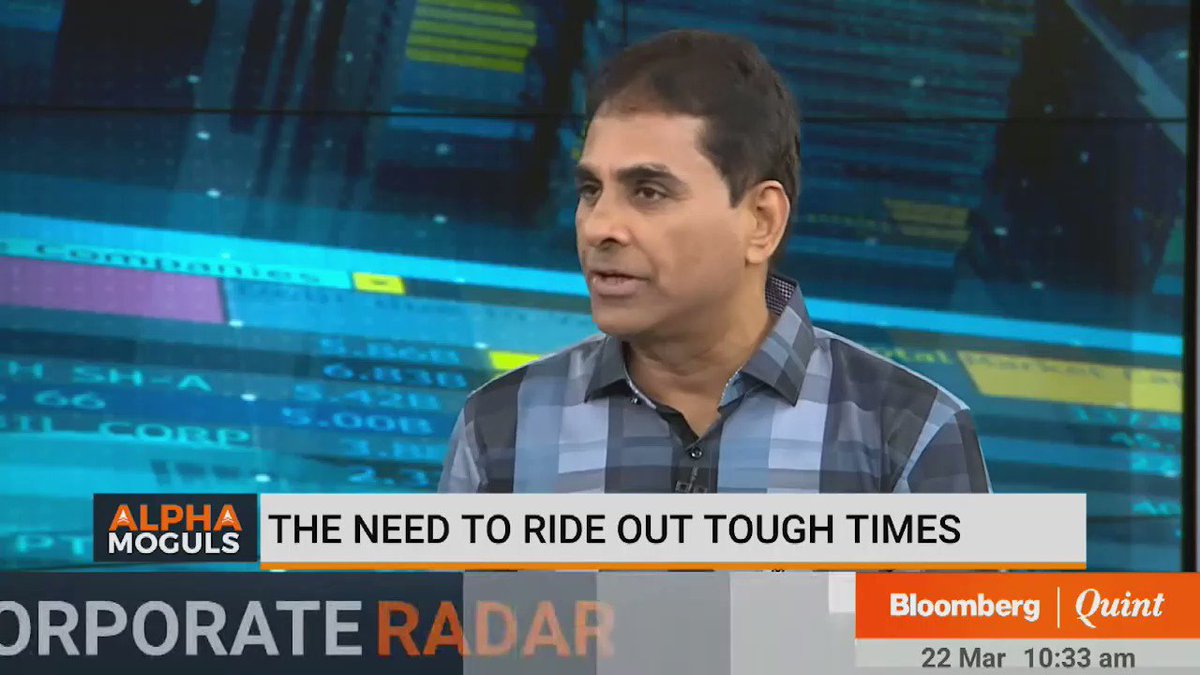The journalist's role, you'd think, would be to critically unpick that. Work through what premiers & the PM did to deserve it, or otherwise.
So I'm not the first, & won't be the last, to be irked by this. But anyway, here goes.
What Murph's reporting (& opining) on is a survey that showed, in a time of international crisis where Australia has performed relatively well, politicians benefit from a "competence dividend"
\U0001f644 pic.twitter.com/odGMUKzPnT
— Richard Chirgwin (@R_Chirgwin) December 25, 2020
The journalist's role, you'd think, would be to critically unpick that. Work through what premiers & the PM did to deserve it, or otherwise.
Murph, though, has been on a weird campaign to position Morrison in particular as a statesman-in-waiting.
And LOL again.
The early economic interventions were made with a gun to his head. The idea he'd suddenly become a learning learner who learns was something Murph seemed desperate to hold on to, like it was important for her sense that federal politics could work properly.
That they stood up in public, and achieved results, however clumsily, was what mattered.
There are multiple stories behind that success. Murph barely even hints at them.
Capable journalists should work through this. NSW Health have been stunning through this.
But still.
Trust-in-politics surveys will tend to elide these distinctions. Those with a platform should highlight them.
You'd think something the feds have carriage over--the rollout of vaccines--would be in Murph's line of sight, as well as other commentators. This is going to be the single biggest test of their competence going forward.
I don't know if we deserve better, but we desperately need it.
More from Politics
39.1% of Democrats think that it's wrong to negatively stereotype people based on their place of birth... AND that Southerners are more racist. https://t.co/yp1hviLuBB
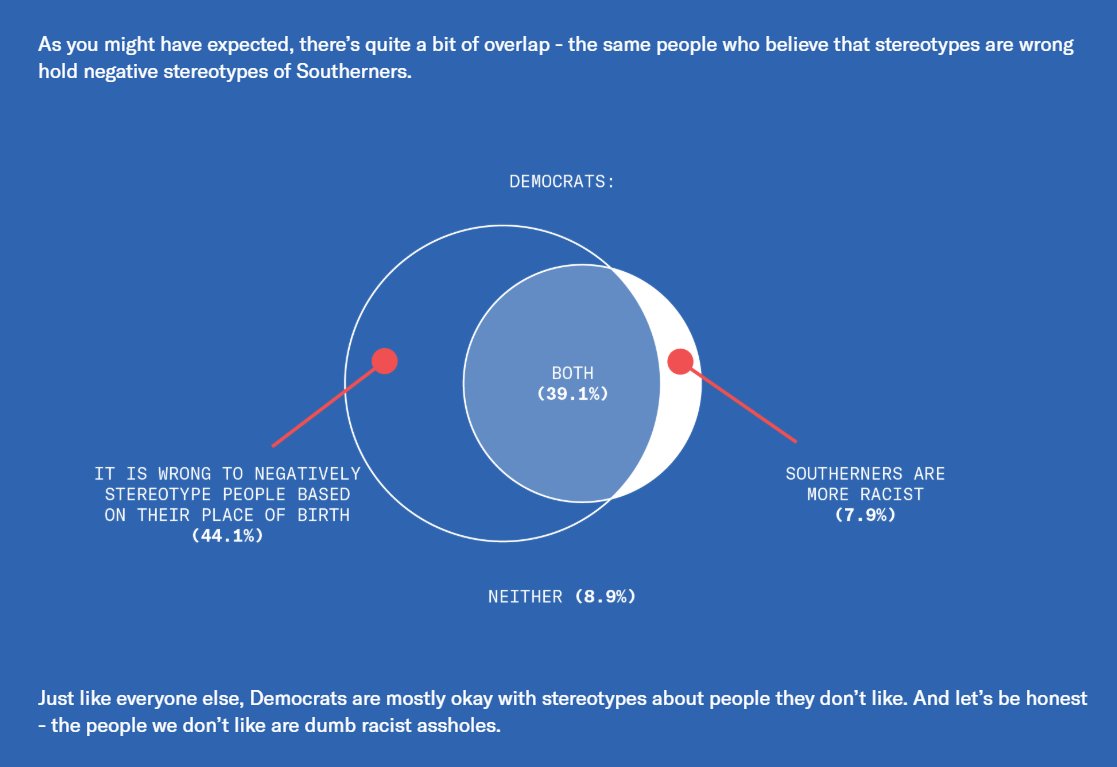
65.2% of Republicans think that people shouldn't be so easily offended... AND that Black Lives Matter is offensive. https://t.co/znmVhqIaL8
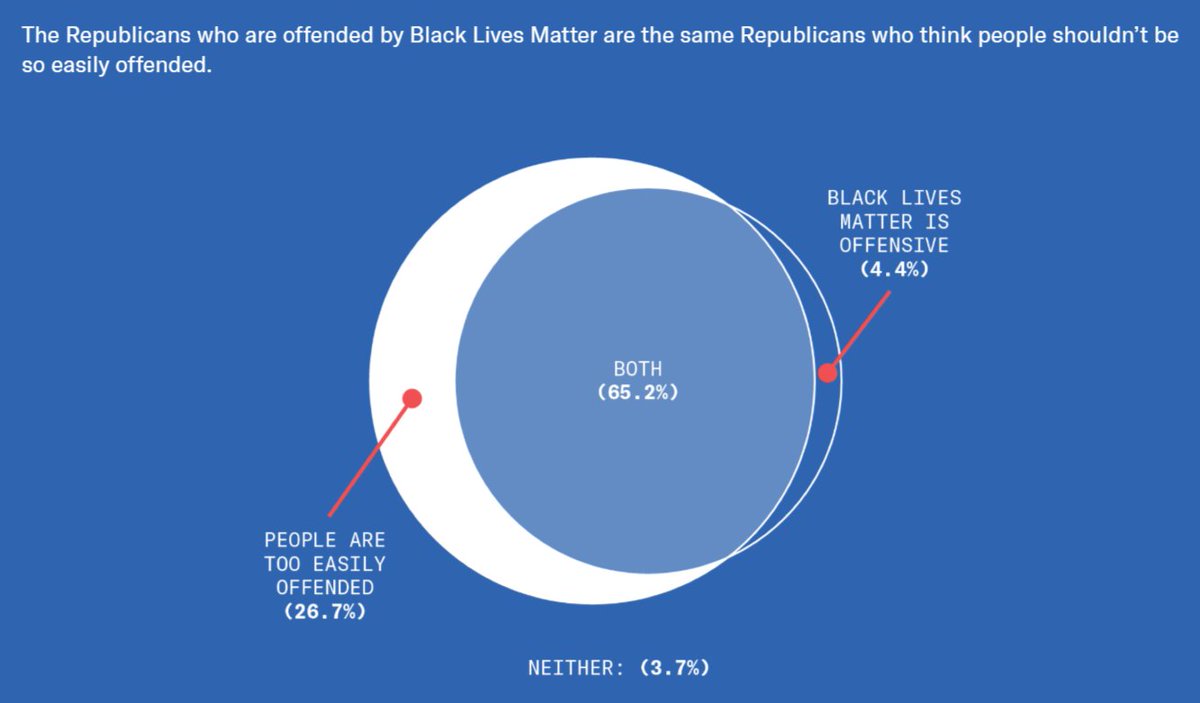
64.6% of Democrats think that a woman has the right to do what she wants with her body... AND that selling organs should be illegal.
48.5% of Democrats think that a woman has the right to do what she wants with her body... AND that prostitution should be illegal.
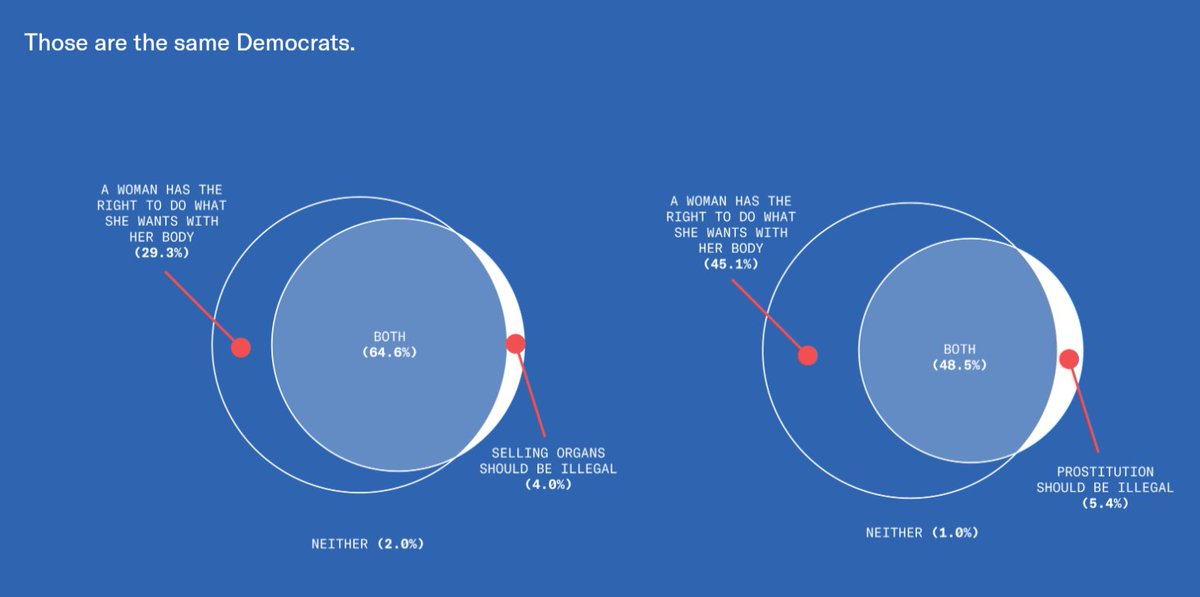
57.9% of Republicans think that people should be free to express their opinions in the workplace... AND that athletes should not be allowed to sit or kneel during the national anthem. https://t.co/ds2ig1NJFr
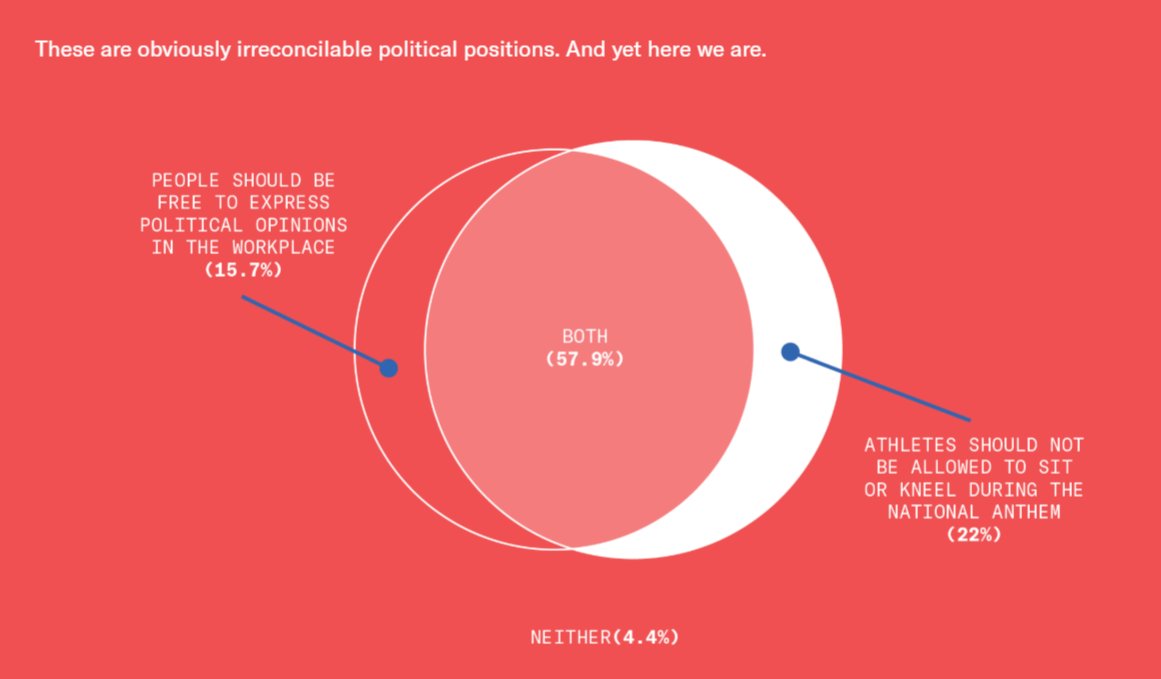
Democrats: Men and women are equal in their talents and abilities. Also, women are superior. https://t.co/bEFSmqQguo
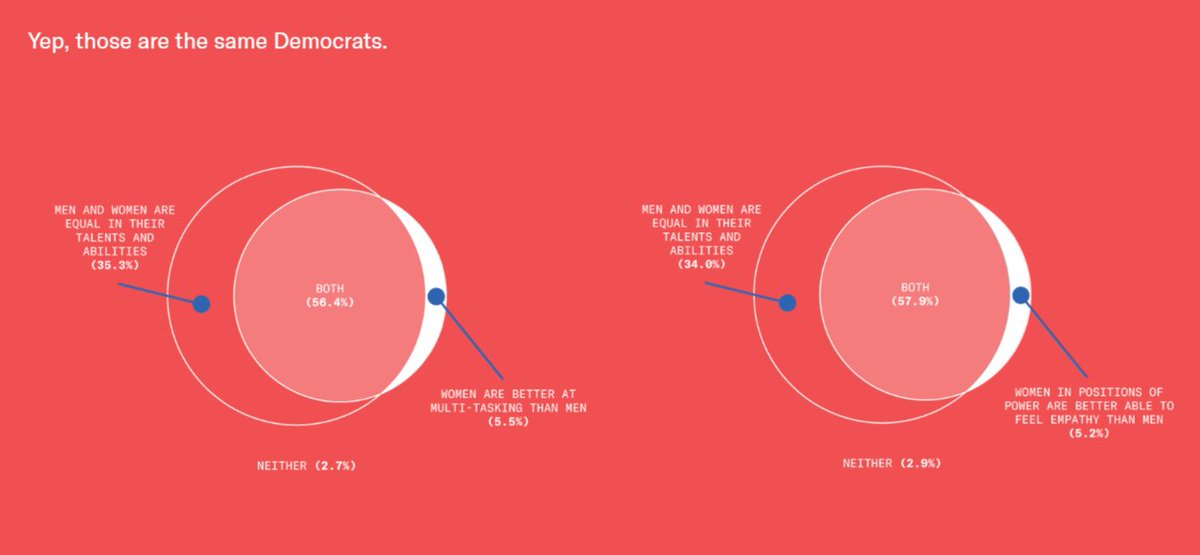

65.2% of Republicans think that people shouldn't be so easily offended... AND that Black Lives Matter is offensive. https://t.co/znmVhqIaL8

64.6% of Democrats think that a woman has the right to do what she wants with her body... AND that selling organs should be illegal.
48.5% of Democrats think that a woman has the right to do what she wants with her body... AND that prostitution should be illegal.

57.9% of Republicans think that people should be free to express their opinions in the workplace... AND that athletes should not be allowed to sit or kneel during the national anthem. https://t.co/ds2ig1NJFr

Democrats: Men and women are equal in their talents and abilities. Also, women are superior. https://t.co/bEFSmqQguo

You May Also Like
Recently, the @CNIL issued a decision regarding the GDPR compliance of an unknown French adtech company named "Vectaury". It may seem like small fry, but the decision has potential wide-ranging impacts for Google, the IAB framework, and today's adtech. It's thread time! 👇
It's all in French, but if you're up for it you can read:
• Their blog post (lacks the most interesting details): https://t.co/PHkDcOT1hy
• Their high-level legal decision: https://t.co/hwpiEvjodt
• The full notification: https://t.co/QQB7rfynha
I've read it so you needn't!
Vectaury was collecting geolocation data in order to create profiles (eg. people who often go to this or that type of shop) so as to power ad targeting. They operate through embedded SDKs and ad bidding, making them invisible to users.
The @CNIL notes that profiling based off of geolocation presents particular risks since it reveals people's movements and habits. As risky, the processing requires consent — this will be the heart of their assessment.
Interesting point: they justify the decision in part because of how many people COULD be targeted in this way (rather than how many have — though they note that too). Because it's on a phone, and many have phones, it is considered large-scale processing no matter what.
It's all in French, but if you're up for it you can read:
• Their blog post (lacks the most interesting details): https://t.co/PHkDcOT1hy
• Their high-level legal decision: https://t.co/hwpiEvjodt
• The full notification: https://t.co/QQB7rfynha
I've read it so you needn't!
Vectaury was collecting geolocation data in order to create profiles (eg. people who often go to this or that type of shop) so as to power ad targeting. They operate through embedded SDKs and ad bidding, making them invisible to users.
The @CNIL notes that profiling based off of geolocation presents particular risks since it reveals people's movements and habits. As risky, the processing requires consent — this will be the heart of their assessment.
Interesting point: they justify the decision in part because of how many people COULD be targeted in this way (rather than how many have — though they note that too). Because it's on a phone, and many have phones, it is considered large-scale processing no matter what.


















